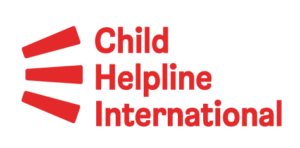According to the UNCRC, when children’s rights are realised (Article 2) no children or young people should be facing discrimination. Despite improvements in legislation, public attitudes and a growing visibility of diversity of gender and sexuality in popular culture, LGBTQI+ children and young people remain at heightened risk of violence and discrimination in school, within the family, and in society in general. This can have grave negative consequences for the emotional and physical well-being of LGBTQI+ children and young people, and is a threat to their universal rights under the UNCRC. In 2017, Stonewall found that more than four in five young transgender persons have self-harmed, as have three in five lesbian, gay and bisexual young people who aren’t transgender.
Child helplines across the world support and counsel tens of thousands of LGBTQI+ children and young people each year. Here are three such stories from helplines across Europe:
Supporting transgender mental health
An adolescent spoke to a child helpline counsellor over webchat about their mental health. The young person was transgender, and feeling depressed and isolated and, while their family was supportive, they didn’t always understand.
The helpline counsellor offered emotional support, acknowledging how challenging it was to be feeling so alone with what they were going through. The counsellor carried out a risk assessment and established that, while they had suicidal thoughts, they didn’t want to act on them. The counsellor explored how they were coping and if there was anything that would help them to feel less alone. The counsellor directed them to a few organisations and networks who specify in supporting young trans-persons who are struggling emotionally. The counsellor also told them that if they felt they were ever going to act on their suicidal thoughts they should call the emergency services or go to the A&E department at their nearest hospital.
Countering LGBT discrimination and bullying
A teenage boy called a child helpline because he was being bullied at school and being called derogatory names for being homosexual. The helpline psychologist spoke to the boy about the diversity, his feelings about his sexual orientation, and tried to assess whether the child felt comfortable with his sexual orientation. The psychologist and the boy worked through a plan of action together, for how he might cope with the bullying.
The child helpline’s psychologist carefully reiterated that no-one has the right to hurt or and verbally abuse him. The child and the psychologist worked through a number of real-life scenarios and techniques in an attempt to boost his confidence and help him learn how to manage his feelings when faced with verbal abuse.
Finally, the psychologist gave guidance on how to protect himself practically – discussing how he feels about his teacher and asking them to set boundaries in the school grounds, and how he feels about discussing the situation with his friends or with his parents. The boy asked if he could call again and the psychologist urged him to do so whenever he felt the need.
Providing advice on family relationships
An adolescent contacted a chat service and told the child helpline counsellor that they were unsure what their gender was and who they were attracted to. The adolescent’s family was very religious and had often stated that LGBT people should be killed. The adolescent contacting the child helpline was feeling hopeless and was sure that they would lose their whole family if they learned about the adolescent’s situation. The adolescent told the counsellor that they didn’t want to be LGBT and asked if it was possible to change.
The child helpline counsellor told the adolescent that in this particular country LGBT people were protected by law and everybody had the right to their sexual orientation and gender identity; that it is emotional abuse to try to force someone into being something they are not. Because there was a risk of abuse from the family, the counsellor organised the child to seek help from LGBTQI support organisations.
The counsellor also talked about feelings and the right to be happy, and encouraged the adolescent to listen to their own feelings and not to try to be something that doesn’t come naturally.
Providing LGBTQ training to helpline volunteers
Last year, Brave Phone (Hrabri telefon) joined Child Helpline International’s WeListen project, which involves European child helplines, by participating in the first of three “Communities of Practice, aimed at further establishing child helplines as a key support and information mechanism for LGBTQI+ children and young people. Following the community of practice, Brave Phone’s coordination team organised a training for volunteers, which was led by Rainbow Families Croatia, whose aim is to advocate for LGBTQI+ families and parental rights, and to support LGBTQI+ parents and their children.

